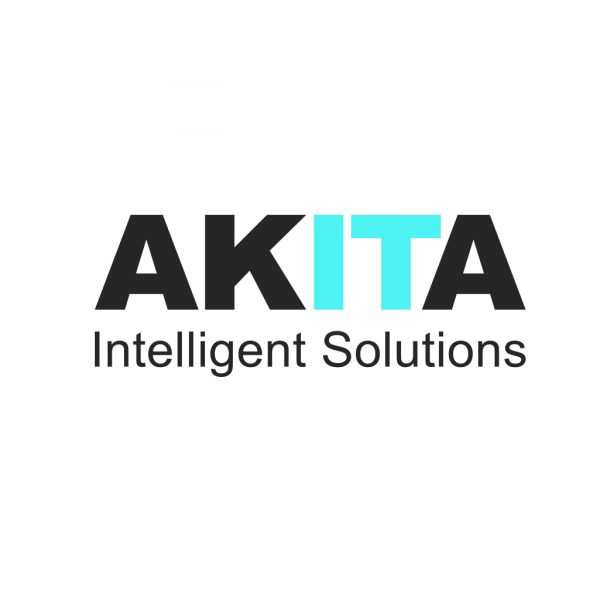Sustainability has evolved from a corporate buzzword to a fundamental business imperative. Organisations across every sector are being challenged to deliver measurable improvements in their environmental, social, and governance (ESG) performance.
Yet, for many leaders, ESG is no longer simply about reputation or regulatory compliance—it is a powerful driver of long-term value creation, risk mitigation, and operational efficiency.
The challenge lies in collecting, managing, and reporting ESG data in a way that is accurate, transparent, and actionable. This is where technology takes centre stage. By leveraging Microsoft Dynamics 365 for ESG reporting, organisations gain a framework to capture and interpret sustainability data, connect it to everyday business processes, and turn it into insights that inform strategy and accelerate progress.
Why ESG data matters
Investors, regulators, customers, and employees are all demanding proof of sustainable action. In Europe, new reporting obligations under the Corporate Sustainability Reporting Directive (CSRD) will soon affect more than 50,000 organisations, including non-EU parent companies. Meanwhile, proposed SEC rules in the United States will require publicly traded companies to disclose their greenhouse gas emissions and climate-related risks.
This heightened scrutiny creates a clear demand for ESG data that is as robust and reliable as financial reporting. For companies in construction, manufacturing, utilities, and facilities management, this need is even more acute. These industries often carry significant environmental footprints through supply chains, energy consumption, or infrastructure projects. Without structured systems to capture and contextualise ESG metrics, businesses risk falling short of both compliance requirements and stakeholder expectations.
Dynamics 365 for ESG: Turning data into decisions
Dynamics 365 offers the scalability and flexibility needed to integrate ESG measurement directly into core business processes. Traditional ERP platforms often trap ESG data in silos, making it difficult to collate and analyse at scale. By contrast, Dynamics 365 unifies finance, operations, HR, supply chain, and customer data in the cloud, creating a foundation for real-time ESG insights.
The platform supports ESG in three critical ways:
-
Data unification: ESG performance is often fragmented across procurement records, energy usage, HR statistics, and supply chain information. Dynamics 365 aggregates these sources, providing a holistic view of environmental and social impacts alongside financial outcomes.
-
Scalable reporting: With embedded AI and analytics, Dynamics 365 helps businesses respond to evolving regulations such as SASB, GRI, or CSRD. Automated reporting reduces manual effort, while dashboards visualise progress for both regulators and investors.
-
Decision-making support: Whether it is selecting suppliers, planning logistics, or forecasting investments, decision-makers can evaluate ESG factors with the same confidence as financial metrics. This ensures sustainability is embedded at every level of business planning.
Navigating the ESG maturity journey
ESG adoption is not an overnight transformation. Microsoft identifies three stages of ESG data maturity, each of which can be accelerated with Dynamics 365:
-
Emerging: Organisations manually collect siloed data with little consistency. Dynamics 365 provides a clear first step by standardising reporting and creating automated connections to key data sources.
-
Hybrid: Companies begin to integrate ESG data into wider business intelligence strategies but are limited by legacy systems. By migrating to Dynamics 365 and leveraging tools such as data lakes and AI analytics, firms gain greater scalability and flexibility.
-
Advanced: At this stage, businesses centralise ERP and ESG data in the cloud. AI, machine learning, and natural language processing are used to predict risks, assess stakeholder sentiment, and drive continuous improvement.
By moving along this maturity curve, organisations transition ESG reporting from a reactive compliance task to a proactive driver of innovation and value.
Sector-specific benefits
While ESG priorities vary, using Dynamics 365 to measure ESG provides tangible benefits across industries with high sustainability impact.
Facilities management
Facilities management firms face growing demands to reduce building energy consumption, manage waste, and support healthier working environments. Dynamics 365 enables integration with IoT sensors to monitor real-time energy use, water consumption, and occupancy data. Automated reporting simplifies compliance with building standards, while predictive analytics help identify inefficiencies. For facilities service providers, this creates opportunities to deliver added value to clients seeking greener facilities.
Construction
The construction sector is under intense scrutiny for its carbon footprint and resource-intensive supply chains. Dynamics 365 helps construction firms track scope 1, 2, and 3 emissions across projects - from raw material sourcing to subcontractor practices. With centralised procurement and project data, firms can evaluate suppliers on sustainability criteria as well as cost. Advanced analytics also support circular economy strategies, such as material reuse and waste reduction, enabling construction companies to meet both regulatory obligations and client sustainability goals.
Manufacturing
Manufacturers are increasingly expected to deliver transparency on sourcing, emissions, and working conditions. Using Dynamics 365 for manufacturing unifies production, logistics, and supply chain data to enable visibility across the full lifecycle of goods. This helps manufacturers optimise processes for energy efficiency, reduce waste, and implement sustainable packaging. For those exploring net-zero commitments, Dynamics 365 provides a clear framework for measuring and managing carbon reductions across global operations.
Utilities
Utilities providers face dual pressures: decarbonising operations while ensuring reliable service delivery. Dynamics 365 supports this by centralising asset, grid, and energy usage data. By aligning ESG insights with operational performance, providers can optimise renewable energy integration, monitor resource consumption, and improve reporting on emissions reductions. For utilities, this not only supports compliance but also strengthens trust with customers and regulators.
Which ESG metrics should your organisation prioritise to align with upcoming regulatory frameworks?
Regulatory bodies are increasingly aligning around a common expectation: businesses must be able to provide clear, auditable evidence of their ESG impact. For organisations considering using Dynamics 365 for ESG, the following metrics should be prioritised for continuous reporting:
-
Carbon emissions (Scope 1, 2, and 3): These remain the cornerstone of reporting requirements under CSRD, SEC proposals, and the Greenhouse Gas Protocol. Dynamics 365 can track fuel use, purchased energy, and supply chain emissions, enabling full visibility across all scopes.
-
Resource efficiency: Energy consumption, water usage, and waste levels are increasingly being scrutinised, particularly in manufacturing, construction, and facilities management. Dynamics 365 can integrate with IoT data streams to provide granular insights into resource performance.
-
Diversity and inclusion: Social metrics such as workforce diversity, gender pay gaps, and labour practices are central to governance reporting. Dynamics 365 HR modules allow businesses to collate, analyse, and present this data transparently.
-
Supply chain sustainability: Regulators expect businesses to account for ESG risks in sourcing and procurement. Dynamics 365 enables supplier scorecards that balance cost with ESG performance indicators.
-
Risk management: Governance-related data—including regulatory compliance, ethical sourcing, and corruption risks—are increasingly prioritised. By centralising operational and financial data, Dynamics 365 supports transparent reporting of governance risks alongside environmental and social metrics.
Prioritising these core metrics ensures alignment with current regulations while creating the foundation for addressing future reporting standards.
How can Dynamics 365 be integrated with existing IoT and AI technologies to enhance ESG data?
The real power of Dynamics 365 for ESG emerges when it is combined with IoT and AI. These integrations enable businesses not only to measure but also to predict and optimise ESG outcomes.
-
IoT for real-time monitoring: IoT sensors embedded in machinery, buildings, and energy grids can provide live data on emissions, energy consumption, and waste. Dynamics 365 can ingest this data directly, allowing businesses to automate ESG reporting and detect inefficiencies instantly.
-
AI for predictive insights: AI models within Dynamics 365 can analyse ESG data to forecast risks, identify patterns, and simulate the impact of future initiatives. For example, manufacturers can model the carbon savings of switching suppliers or adjusting production schedules.
-
Machine learning for supply chains: Machine learning can assess supplier ESG performance and predict risks across global networks. When integrated with Dynamics 365 Supply Chain Management, businesses gain early warnings about potential sustainability breaches.
-
Natural language processing (NLP) for sentiment analysis: ESG is not just about hard data—stakeholder perception also matters. Dynamics 365 can use NLP to analyse unstructured data such as press coverage, customer feedback, or employee surveys to evaluate public sentiment around ESG performance.
These integrations make ESG reporting more than an administrative task—they turn it into a source of competitive intelligence.
What competitive advantages could your business gain by positioning sustainability at the core?
Sustainability, when genuinely embedded, delivers far more than compliance—it creates lasting competitive advantage. With Dynamics 365 for ESG, businesses can:
-
Win investor confidence: With 73% of investors now considering sustainability in decision-making, transparent ESG reporting through Dynamics 365 strengthens credibility and improves access to capital.
-
Enhance customer loyalty: Consumers and B2B clients alike are favouring suppliers with clear sustainability commitments. Transparent ESG data, backed by Dynamics 365, helps position your brand as a trusted partner.
-
Improve operational efficiency: By linking ESG goals to operational processes, Dynamics 365 uncovers inefficiencies in energy use, logistics, and resource consumption—delivering cost savings alongside environmental benefits.
-
Attract and retain talent: Employees, particularly younger generations, prefer to work for companies with a clear ESG mission. Dynamics 365 makes it easier to demonstrate real progress, supporting recruitment and engagement.
-
Strengthen brand reputation: Companies that openly share ESG data, successes, and challenges gain reputational capital that translates into long-term resilience. With Dynamics 365 providing reliable insights, brands can communicate with confidence.
These competitive advantages highlight why ESG should be seen not as a regulatory hurdle but as a strategic opportunity to differentiate.
Practical steps to get started
Implementing a Dynamics 365 ESG solution doesn’t have to be overwhelming. Four practical steps can accelerate progress:
-
Focus your efforts: Prioritise the ESG issues most material to your industry. For example, manufacturers may emphasise sustainable packaging, while facilities managers may focus on energy efficiency.
-
Start simple: Use spend-based methods to calculate emissions, beginning with procurement and invoice data. This builds a baseline for more detailed tracking over time.
-
Plan ERP transformation: If legacy systems are creating barriers, modernising with Dynamics 365 provides the flexibility and scalability needed for long-term ESG success.
-
Leverage cloud tools: Integrating Microsoft Cloud for Sustainability with Dynamics 365 enhances reporting accuracy through automated data collection, helping businesses record, report, and reduce their impact more effectively.
Beyond compliance: Building value through ESG
As ESG expectations continue to rise, one question remains: will businesses see reporting as a regulatory burden, or embrace it as an opportunity to lead?
Businesses that authentically embed sustainability into their operations are more resilient, more competitive, and better positioned to attract investment. Dynamics 365 enables this by ensuring ESG is not an afterthought, but a lens through which every financial, operational, and strategic decision is made.
By scaling ESG data collection and analysis, companies can demonstrate leadership, exceed stakeholder expectations, and capture new opportunities for growth.
The path to ESG excellence is a journey, not a destination. For industries like construction, manufacturing, facilities management, and utilities—where sustainability challenges are particularly acute - Dynamics 365 offers a proven platform to deliver measurable impact.
To discuss more around utilising Microsoft solutions for ESG monitoring and measurement, please get in touch:





